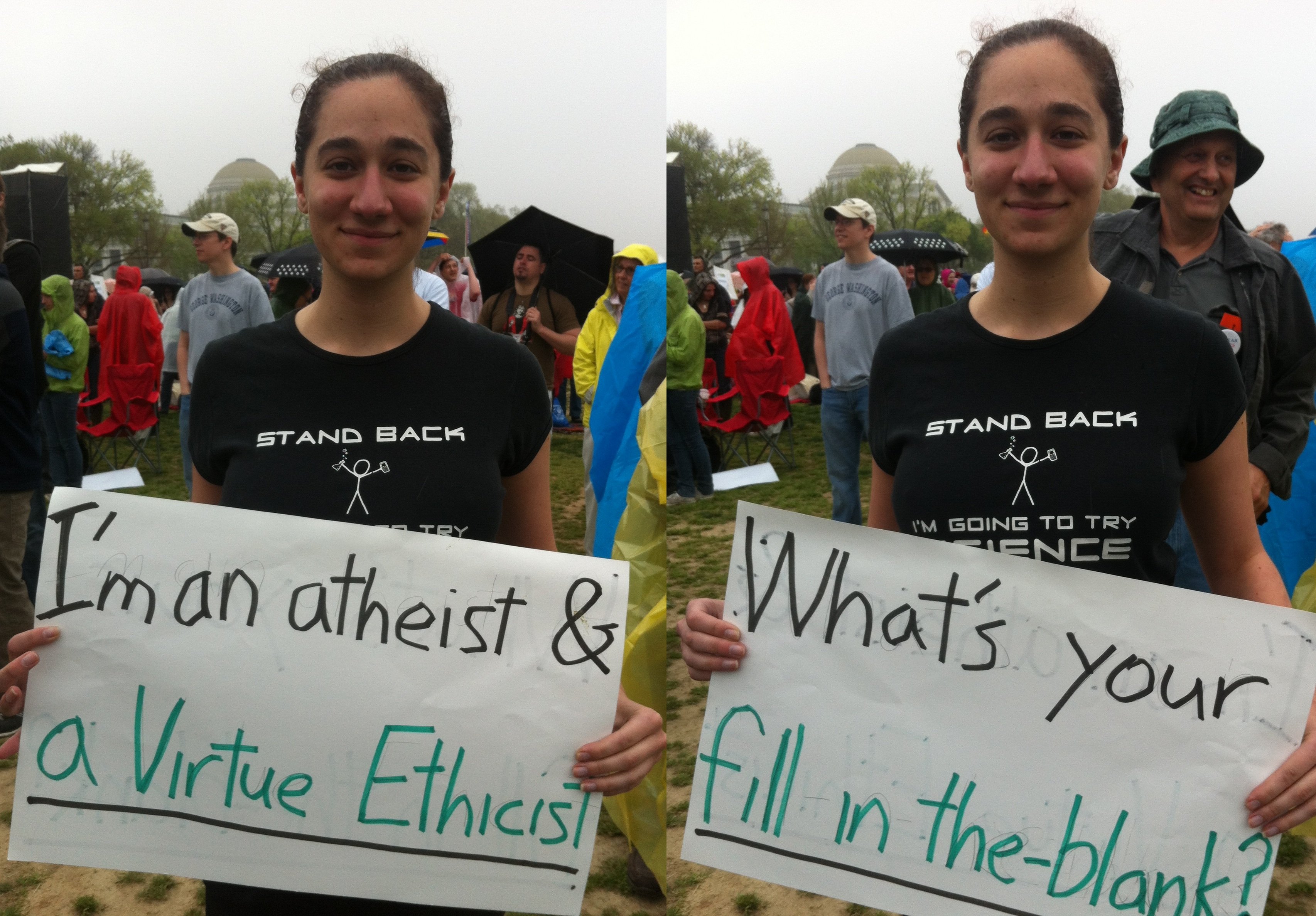
Over at Bitchspot, a blogger named Cephus has been fisking my About Me section (which I’ll get around to updating soon) to try to spot the roots of my errors. I’m not really interested in counter-fisking, but right near the end, Cephus cogently summarized an argument I’ve seen elsewhere, that I’d quite like to address. I’m the double-indent, Cephus follows.
So welcome to the conversation. Play nice, but play to win. And don’t be afraid to show your hand. If you’re doing someone a service by pointing out their errors, be grateful when someone catches you out in one.
The problem is, the skeptic, if acting in a consistent skeptical manner, has very few errors to be caught. Skepticism is a methodology, not a belief system. It examines claims rationally, it looks for objective evidence, it seeks to remove emotional biases and if all of it’s standards are not met, the claim is rejected, at least temporarily, until the evidence becomes more clear.
I think Cephus, like a lot of people, isn’t making an appropriate tradeoff between false positives and false negatives. The extreme skeptic does fall into error if she withholds belief from something that is true. Think of a too-insecure lover, who refuses to believe the professions of the beloved. Or get a little less romantic, and think of a climate change skeptic, who thinks the evidence isn’t strong enough to necessitate changing our way of life. Or the evangelicals with a really strange pitch that I met at Reason Rally.
Now, in each case, Cephus might claim that the person is using skepticism wrongly, and I wouldn’t disagree. But if these people and others are excluded from the ranks of skeptics, we’re getting pretty close to defining a skeptic as someone whose beliefs are correct. Well, sign me up!
But at that point, it’s a little anti-climatic to only define skeptics in terms of their method. I want to know the beliefs that passed the test. After all, that’s part of how we judge the use of any method or test: does it return the right answers for the test cases we’re really sure of? (Cue a debate on which propositions we can use as test cases).
Defining yourself solely as a skeptic is as bizarre as defining yourself solely as an atheist. Everyone has a system of ethics, a philosophy, a metaphysics. When I was an atheist, it wasn’t skepticism or atheism that I really needed to defend. I was defending stoicism and deontological ethics for a while, then I lost and ended up defending virtue ethics. I was defending radical forgiveness. I was attacking the way we ask people in certain careers to be scapegoats in the old sense, people who dirty their hands so we can stay pure.
I could be wrong about those, prefer to be pretty upfront about what my best guess is and then caveat by talking about the confidence intervals I’d throw around it. I’m not actually in a state of equipoise when I don’t have rigorous, logical proof. I did one interview (that I’m having trouble tracking down online) with a Christian interlocutor and this is my best recollection of one exchange:
Q: Wasn’t it very arrogant to call yourself an atheist? I mean you didn’t have proof that God didn’t exist. You were really agnostic.
A: I believe there’s not microbial life on Mars, and I’ve spent a lot less time investigating that than I have reading about religion. I may not have proof, but I have a best guess based on evidence, and if I said something else, I’d be lying.
I don’t think skeptics-identifying-only-as-skeptics are lying, but I think they’re not putting all their cards on the table, which makes it a lot harder to be corrected if you’re wrong or convert your opponent if you’re right.











